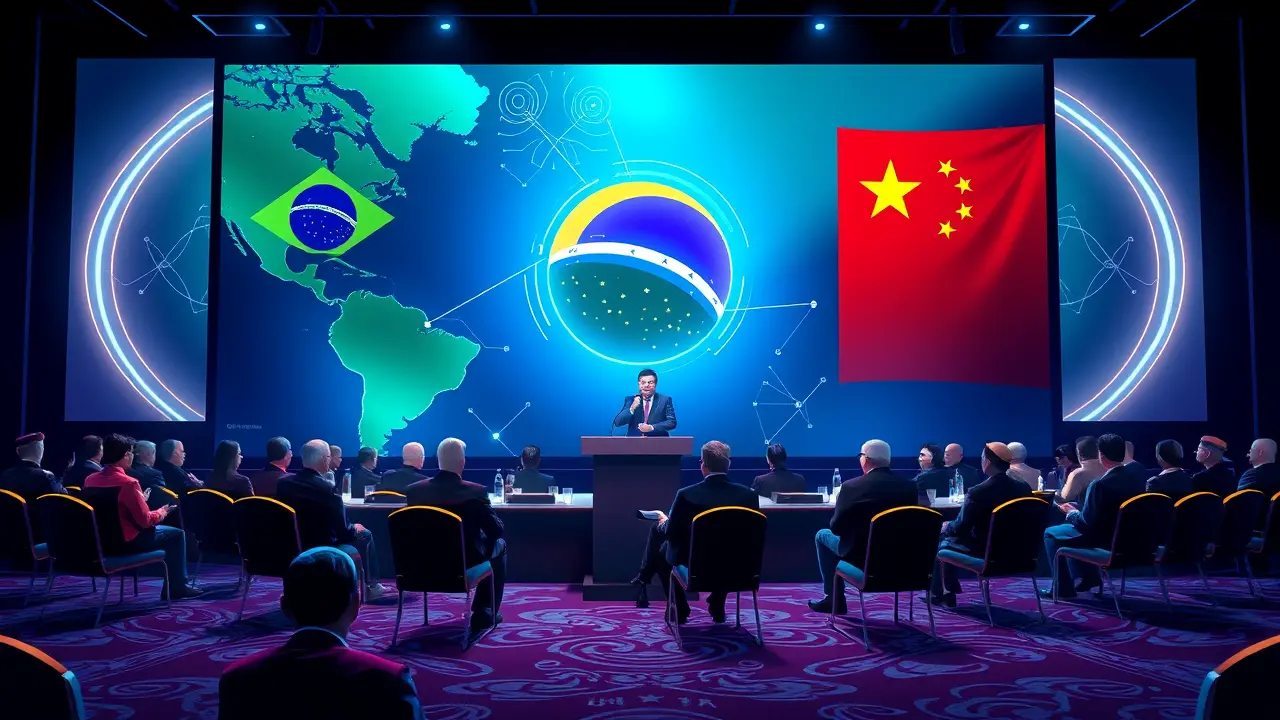China envoy strengthens Brazil ties amid US tariff dispute.
In a calculated diplomatic maneuver resonating with the sharp clarity of a geopolitical chess move, China’s ambassador to Brazil, Zhu Qingqiao, took to the podium in São Paulo this Monday, delivering a keynote speech that was far more than mere rhetoric; it was a strategic declaration aimed squarely at fortifying an alliance against the gathering storm of US trade aggression. Speaking at the opening of the annual Brazil-China Business Council meeting, a congregation of the hemisphere's most influential business leaders, senior Brazilian officials, and diplomats, Ambassador Zhu methodically reaffirmed Beijing’s unwavering support for a dual-pronged offensive of targeted investment and streamlined export certifications.This initiative is explicitly designed to inoculate South America’s largest economy from the disruptive fallout of US President Donald Trump’s escalating tariff offensive, a policy shift that has sent shockwaves through global supply chains and forced nations to recalculate their economic allegiances. The ambassador’s address, steeped in the language of long-term partnership, emphasized Beijing's commitment to what he termed 'sustainable development' and the joint pursuit of a 'world-class' commercial ecosystem, a vision that stands in stark contrast to the protectionist unilateralism emanating from Washington.This is not an isolated event but a critical node in a much broader, high-stakes confrontation. The US tariff dispute, while currently focused on traditional adversaries, represents a fundamental recalibration of American economic statecraft, one that inadvertently creates power vacuums and opportunities for other global players.China, with its immense Belt and Road Initiative experience and deep capital reserves, is seizing this moment with characteristic strategic patience, positioning Brazil not merely as a trade partner but as a pivotal anchor in its hemispheric strategy. The calculus is clear: by offering Brazil a reliable alternative to US markets and financial institutions, Beijing effectively dilutes American influence in a region it has long considered its backyard.The risks here are multifaceted. For Brazil, the embrace offers immediate economic relief and infrastructure investment but carries the long-term hazard of deepened dependency on Chinese capital and commodity demands, a dynamic that has ensnared other developing nations.For the United States, this represents a significant blow to its diplomatic leverage, potentially ceding ground in a critical region at a time of intense great-power competition. Analysts watching the room in São Paulo would have noted the subtext in every handshake and signed memorandum of understanding—this was a live exercise in realigning the global order.The consequences will ripple far beyond bilateral trade figures, influencing everything from regional security architectures to votes in international bodies like the UN. As the US engages in economic brinksmanship, China is quietly, methodically building the foundations of a parallel system, and the partnership with Brazil may well be remembered as one of its most consequential cornerstone-laying ceremonies.
It’s quiet here...Start the conversation by leaving the first comment.
